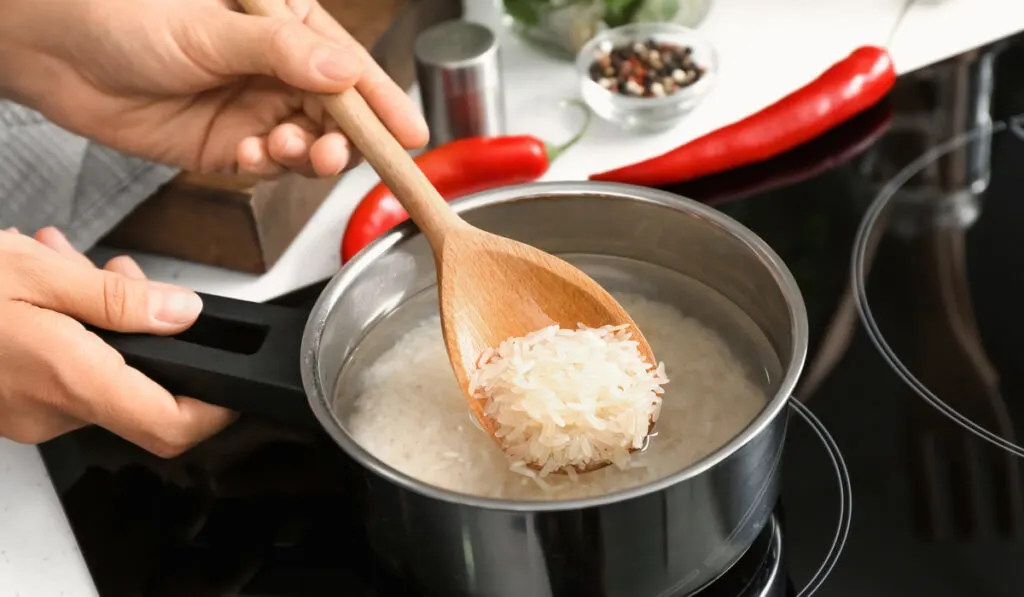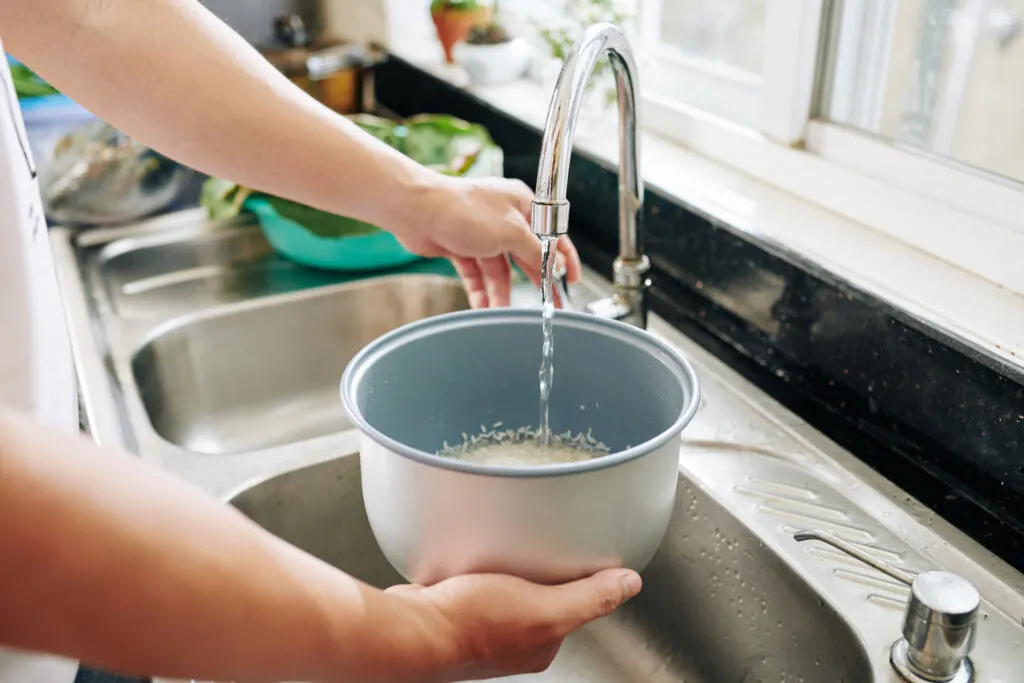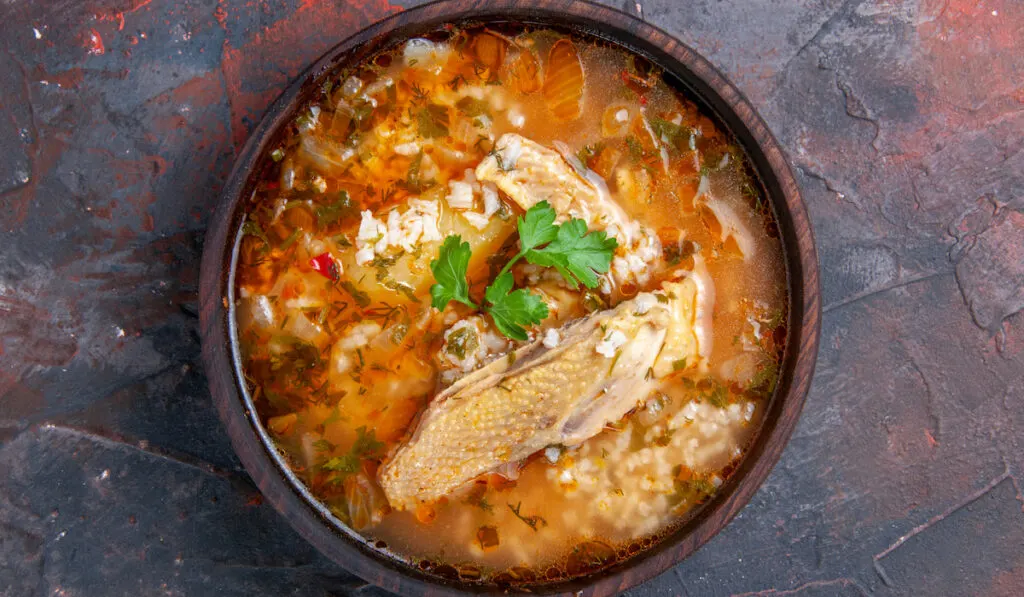Rice is a nutritious and versatile grain whose varieties possess a range of colors, sizes, and individual characteristics. You will find rice in many cultures and cuisines around the world, often prepared and cooked in very different ways.
If you’ve only ever boiled white long-grain rice in water, get ready to read our article and learn something new and delicious in the kitchen.
Rice can also be cooked in a soup instead of separately in water and mixed together after.
For best results, you should choose a suitable variety of rice, rinse it well, cook it in well-seasoned seasoned stock, and be careful not to overcook.
There are many different soup recipes containing rice. You can also prepare a tasty side dish by cooking rice in a light broth made with meat or vegetable stock.
If you enjoy cooking with rice and want to expand your recipe repertoire then this is the article for you. Carry on reading to learn about cooking rice in soup, tips for getting the best results, and recipes to try for soups with rice.
Table of Contents
Can I cook rice in soup instead of water?

Rice has been a staple food around the world for millennia and is a very normal soup ingredient in many countries.
From hearty Tuscan rice and bean soups, through spicy mulligatawny recipes, to light Chinese chicken and mushroom broths, rice can add texture, carbohydrates, and satisfaction to tasty but otherwise insubstantial dishes.
Before you start cooking rice in soups, there are a few facts you should know about rice that will help you make the right cooking decisions when preparing your soups.
Rice structure
Rice grains are composed of multiple layers.
The outer layer (the chaff) is inedible and removed during processing.
The next layer is the fiber-rich bran, followed by the highly nutritious germ layer. Inside these is the starchy white endosperm layer.
This final layer on its own forms what we know as white rice. When the bran and germ are present, we have brown rice.
Rice cooking process
Rice will cook when heated in water, milk, stock or other water-based liquids, taking on the flavors of the liquid around it.
It softens during cooking through a chemical process called gelatinization, during which the starch granules in the rice grains absorb water, losing their crystalline structure. At the gelatinization temperature, 90% of starch granules will have become irreversibly swollen.
Overcooking rice
If cooking continues after gelatinization, a second process called pasting can occur, especially if you’re stirring your rice.
During pasting, swollen starch granules break down, leaking amylose and other components into the surrounding liquid, and making it thicker.
Rice varieties
Brown rice (and red, black, or wild rice) is more nutritious, takes longer to cook, and has a firmer, chewier texture than white rice.
Short grain rices include risotto rices (e.g. arborio, carnaroli) paella rice (e.g. bomba), and sushi rice. Short-grain rices are more rounded and become sticky when cooked.
Long-grain rices include aromatic rices like basmati and jasmine, distinctive red, black and wild rices, and simple American long-grain rice.
How do I cook rice in soup instead of water?
Tip 1 – Choose the right kind of rice
Soups typically cook for longer periods than you would normally cook rice in water. This risks overcooking the rice and thickening the soup.
If you want a soup that is thinner or where your rice retains its shape, you should choose a rice variety that is more resilient and takes longer to cook (e.g. brown or red rice) or a short-grain variety lower in amylose (e.g. arborio).

Tip 2 – Rinse the starch off the rice
You can reduce the risk of over-thickening your soup by rinsing the rice thoroughly before cooking to remove excess starch from the surface of the grains.
Rinse and swirl the rice repeatedly in cold water until the water runs clear.
Tip 3 – Season well
Your rice will absorb all the flavors of the ingredients it cooks with so make sure stock, herbs, and other seasoning are added to the soup before or along with the rice.
Tip 4 – Don’t overcook your rice
To get the rice in your soup at exactly the right consistency for your taste, monitor the cooking time and texture carefully, occasionally trying a grain on a spoon to test readiness.
If you have ingredients that need to be cooked for longer than the rice (e.g. if preparing stock from meat or fish bones) then carry out initial cooking steps before adding the rice and seasoning.
NB: Slow cookers are not a good choice for preparing soups with rice unless you’re aiming for a congee/rice porridge texture as the final result.
Three recipes where rice is cooked in the soup
Mulligatawny Soup
Mulligatawny soup is a rich, curry-spiced soup with rice. It can be made entirely with vegetables (e.g. onion, carrots, sweet potato, swede) or chicken or other meat could be added too.
An apple and/or a spoon of mango chutney cooked with the other ingredients give a note of fruitiness to the dish.
Add the rice once the meat and vegetables are cooked to avoid overcooking.
Chicken and rice soup with ginger and turmeric

This bright and colorful chicken broth with Asian spices can be made with either arborio or short grain brown rice. The rice variety needs to be resilient as it will be cooked through the process of poaching the chicken in the broth.
Rice pilaf
Pilaf dishes can be made with a variety of grains including rice. This pilaf recipe cooks long-grain rice in a vegetable or chicken stock broth with vegetables and seasoning. Brown, red, or jasmine rice varieties can also be used if preferred. It makes a tasty accompaniment to meat, chicken, or vegetable protein main dishes.
Summary
Rice can be cooked in soup with delicious results as long as you follow a few simple guidelines. Make sure you choose the right variety of rice for your dish, rinse it well and cook it correctly.
Want to know all about cooking rice in soup instead of water? Our article gives you top tips and recipes to try.
Resources
- https://sciencemeetsfood.org/rice-science-101-introduction-making-great-rice-home/
- https://www.finecooking.com/article/the-science-of-cooking-rice
- https://www.myrecipes.com/ingredients/types-of-rice
- https://www.simplyrecipes.com/recipes/rice_pilaf/
- https://www.olivemagazine.com/recipes/healthy/mulligatawny-soup/
- https://cooking.nytimes.com/recipes/1020776-chicken-and-rice-soup-with-ginger-and-turmeric
